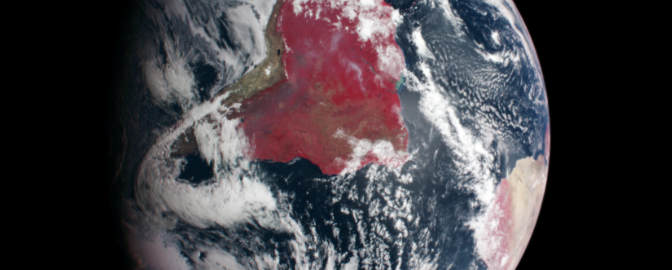Coalition of science, education, and space organizations urges Congress to protect NASA science in upcoming short-term funding bill
For Immediate Release
September 17, 2025
Contact
Danielle Gunn
Email: [email protected]
Phone: +1-626-793-5100
Washington, D.C. (September 17, 2025) — A coalition of science, education, labor, and space advocacy organizations led by The Planetary Society sent a joint letter to congressional appropriations leaders today urging them to protect NASA’s Science Mission Directorate (SMD) from irreversible cuts during an anticipated stopgap funding period.
The letter calls on appropriators to include an “anomaly” in any Continuing Resolution (CR) that ensures NASA missions and projects identified for termination in the White House’s FY 2026 NASA budget request continue operating until Congress passes full-year appropriations. Without this directive, the White House’s Office of Management and Budget (OMB) could functionally impose their proposed 47% cut to NASA science during the CR, resulting in dozens of irreversible mission terminations. Both House and Senate appropriations bills for NASA reject the vast majority of those proposed terminations.
It aligns with a bipartisan congressional letter led by Representatives Judy Chu (D-CA) and Don Bacon (R-NE) released earlier this week, which called for a similar provision in the upcoming continuing resolution.
“Congress has already made its intent clear: it rejects these reckless cuts and supports continued investment in NASA science,” said Jack Kiraly, director of government relations at The Planetary Society. “Without language in the CR, OMB could override that intent, shutting down missions mid-stream, wasting taxpayer dollars, and undermining U.S. leadership in space exploration. Congress must act now to prevent irreversible harm.”
The coalition letter emphasizes that:
- The administration’s FY 2026 budget request proposed eliminating more than 40 NASA science projects, including 19 active missions.
- Both House and Senate appropriations committees have largely rejected these cuts in their Commerce-Justice-Science (CJS) bills.
- Restrictive OMB apportionments during a CR could effectively impose the 47% cut, preempting Congress’s constitutional role in setting funding levels.
- Congress can include explicit CR language prohibiting funds from supporting the termination or suspension of active NASA projects and enabling funds to flow at the rate necessary to continue normal operations.
“This does not require any new spending,” said Casey Dreier, chief of space policy at The Planetary Society. “This is simply a directive to prevent un-strategic and wasteful mission terminations rejected by Congress. NASA’s science missions are unique national assets. We cannot allow them to be terminated by default in a temporary stopgap bill.”
Signing the letter are: The Planetary Society, the American Geophysical Union, the American Society for Gravitational and Space Research, the Association of American Universities, the Association of Public and Land-grant Universities, Black In Astro, ExploreMars, Inc., the International Federation of Professional and Technical Engineers, The Mars Society, the Maryland Aerospace Alliance, the National Space Society, the Scientific Society for Astrobiology, Stand Up For Science, the Students for the Exploration and Development of Space (SEDS) USA, and the TexSpace Collective.
Press Resources
Casey Dreier, Chief of Space Policy, is available for interviews. Please arrange with Danielle Gunn, chief communications officer, at [email protected]
The full letter text sent to the House of Representatives appropriations leadership, and the letter text sent to the Senate appropriations committee leadership.
The text of the bipartisan congressional letter from Representatives Chu, Bacon, and six additional members of the House of Representatives.
The Save NASA Science Action Hub provides the latest updates and resources regarding the budget crisis facing NASA's space science activities.
About The Planetary Society
With a global community of more than 2 million space enthusiasts, The Planetary Society is the world’s largest and most influential space advocacy organization. Founded in 1980 by Carl Sagan, Bruce Murray, and Louis Friedman and today led by CEO Bill Nye, we empower the public to take a meaningful role in advancing space exploration through advocacy, education outreach, scientific innovation, and global collaboration. Together with our members and supporters, we’re on a mission to explore worlds, find life off Earth, and protect our planet from dangerous asteroids. To learn more, visit www.planetary.org.
###


 Explore Worlds
Explore Worlds Find Life
Find Life Defend Earth
Defend Earth

